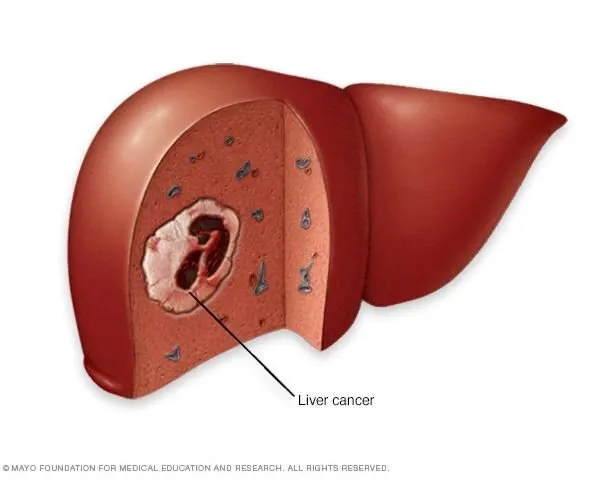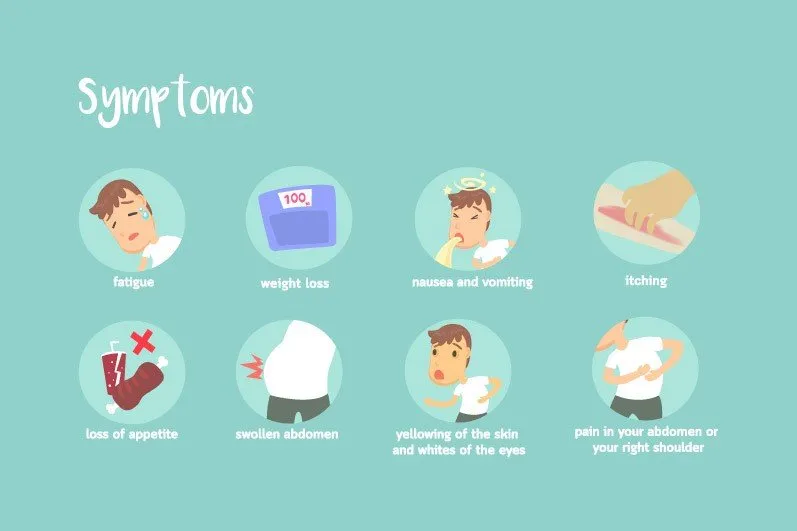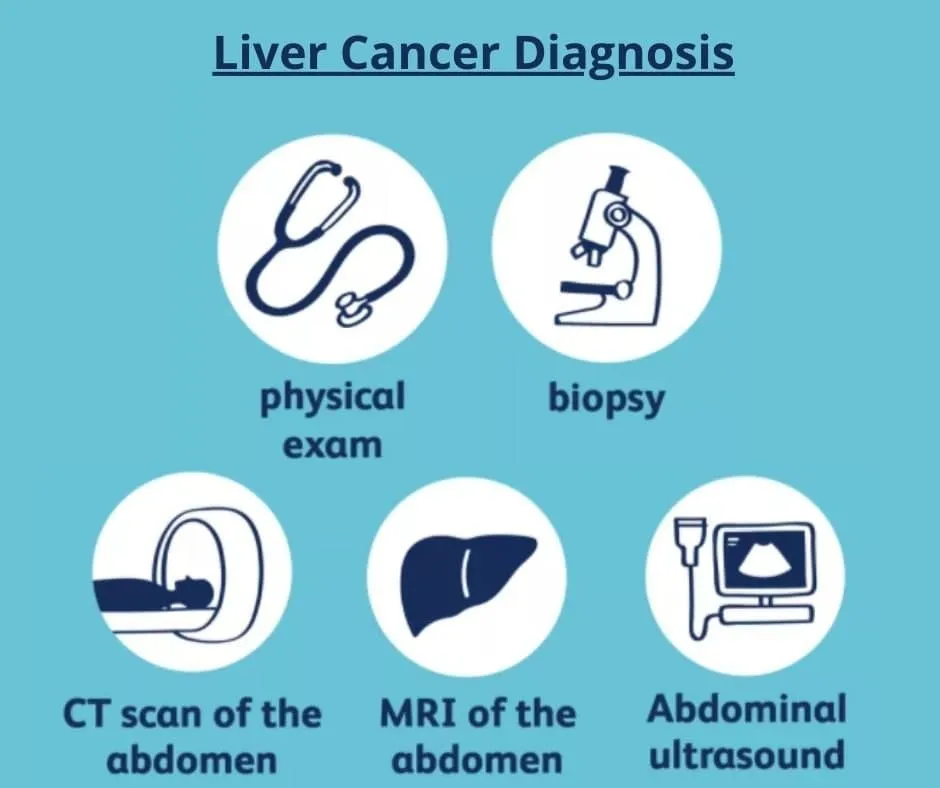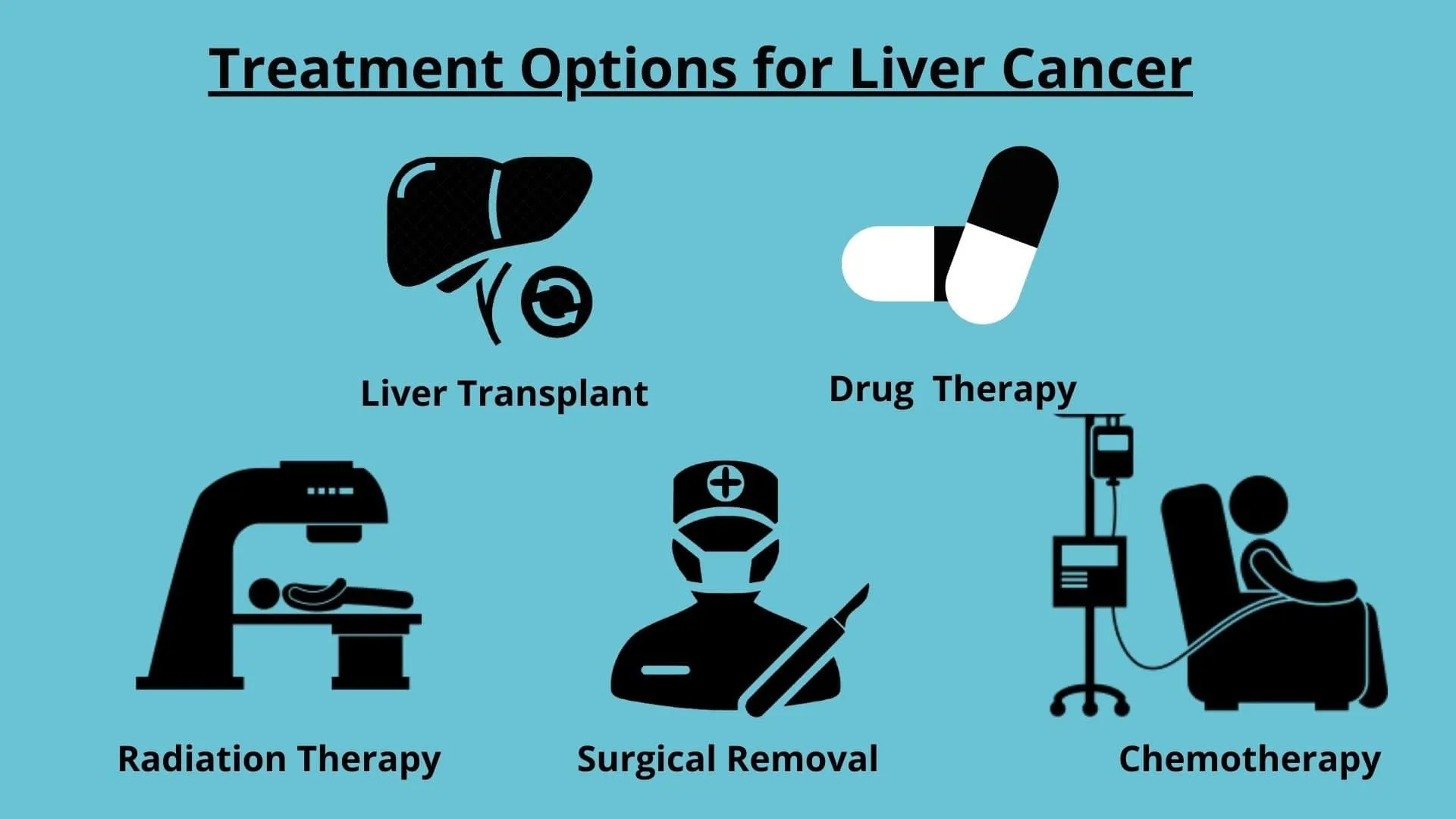Dr. Gaurav Gupta is an experienced doctor for liver cancer treatment in Mumbai. He is an ASTS certified abdominal organ transplant surgeon with more than ten years of experience performing transplant surgery successfully.
Dr Gaurav is the Head of Liver Transplant and HPB Surgery at Fortis Hospitals, Mumbai. Moreover, Dr Gaurav is known for providing one of the safest and best liver transplant in Mumbai, the most effective option for liver cancer patients.
Let us understand liver cancer in-depth and the various treatment options available:
What is liver cancer?

Cancer that starts in the cells of the liver is known as liver cancer. The liver is a large organ that lies in your body’s upper right part, under your diaphragm, and above your stomach.
Hepatocellular carcinoma is the most prevalent form of liver cancer, and it starts with the main type of liver cell (hepatocyte). Other forms of liver cancer are much less common, such as intrahepatic cholangiocarcinoma and hepatoblastoma.
Signs and symptoms of liver cancer

In the early stages of liver cancer, most patients have no signs or symptoms. When signs and symptoms may occur, these could include the following:
- Weight loss without effort
- Hunger loss.
- Pain in the upper abdomen
- Vomiting and nausea
- Exhaustion and fatigue
- Swelling in the abdomen
- Discoloration of the face and the whites of your eyes with a yellowish hue (jaundice)
- Stools that are white and chalky
Causes of liver cancer
Mostly Liver cancer develops in the background of chronic liver disease (Cirrhosis). The cause of cirrhosis can be anything like Hepatitis B, NASH, Alcohol, or Hepatitis C. However, liver cancer may occur in people who have no underlying conditions, and the cause is unknown.
Who is at risk of liver cancer?
Several factors can cause primary liver cancer, including:
- Chronic infection with HBV or HCV: Hepatitis diseases like Hepatitis B virus (HBV) or hepatitis C virus (HCV) contamination raises the chance of liver cancer.
- Cirrhosis: Scar tissue forms in the liver due to this chronic and permanent disease, increasing the risk of contracting liver cancer.
- Hereditary liver disorders: Hemochromatosis and Wilson’s disease are two liver diseases that can raise liver cancer risk.
- Excessive alcohol: Drinking more than a moderate amount of alcohol regularly for a long time will cause permanent liver damage and raise the risk of liver cancer.
How is liver cancer diagnosed?

Before providing liver cancer treatment, diagnosis is very important. The doctor uses the following tests and procedures to detect liver cancer:
- Blood tests: Abnormalities in liver function can be discovered by blood testing.
- Imaging tests: The doctor might recommend an ultrasound, CT scan, or MRI.
- Obtaining a sample of liver tissue for testing: To make a conclusive diagnosis of liver cancer, it could be important to take a liver tissue fragment for laboratory examination.
How is liver cancer treated?
There are several options available for treatment in Mumbai. The degree (stage) of primary liver cancer, as well as your age, physical health, and personal interests, both influence treatment options.
The following procedures are used to cure liver cancer:
- Surgical removal of the tumor: If the tumor is small and your liver function is fine, the doctor may prescribe an operation to remove the liver cancer and a small portion of healthy liver tissue surrounding it.
- Liver transplant: Your diseased liver is removed and replaced with a healthy liver from a donor during liver transplant surgery. You can visit Dr. Gaurav Gupta to assess your liver cancer and whether undergoing a liver transplant procedure In India is the best option for you. There are criteria known as UCSF or Milan criteria that determine your eligibility for a liver transplant.
- Locoregional Therapy: Radiofrequency ablation or microwave ablation are therapy which can be used to directly target small-size liver cancer. Transarterial Chemoembolisation(TACE) can be used to block blood vessels which supply liver cancer. It can be used as bridge therapy while waiting for a liver transplant.

- Radiation therapy: Radiation therapy uses high-powered energy from X-rays and protons to kill cancer cells and shrink tumors. Doctors deliberately steer the radiation to the liver while sparing the healthy tissue in the surrounding area. If other therapies aren’t available or haven’t worked, radiation therapy might be an alternative. Radiation therapy can help manage symptoms in advanced liver cancer patients.
- Chemotherapy: Chemotherapy is a treatment that uses medications to destroy quickly multiplying cells, such as cancer cells. Chemotherapy may be given through a vein in your arm, as a tablet, or a combination of both. It can be used to cure advanced liver cancer in some cases.
View our recent Case Study
Doctors at Fortis Hospital Mulund performed a unique Liver transplantation surgery when a sister travelled from the USA, despite international travel restrictions, to donate a part of her liver and save her brother’s life. The transplant was essential as the patient was suffering from Liver Cirrhosis for the past one year.
The procedure was successfully conducted by Dr. Gaurav Gupta, Consultant & Chief Surgeon, Dept. of Liver Transplant and HPB Surgery, Fortis Hospital, Mulund, and his team. To read more about the case, click here.
For critical procedures like these, cases are recommended to suffer as the megacity is equipped with expert surgeons and world– class structure.
Dr. Gaurav Gupta is an experienced doctor for cancer treatment in Mumbai. He is an ASTS certified abdominal organ transplant surgeon with more than ten years of experience performing transplant surgery successfully.
Dr. Gaurav is the Head of Liver Transplant and HPB Surgery at Fortis Hospitals, Mumbai. Moreover, Dr. Gaurav is known for providing one of the safest and best liver transplant in Mumbai, the most effective option for liver cancer patients.
Let us understand liver cancer in-depth and the various treatment options available:
What is liver cancer?

Cancer that starts in the cells of the liver is known as liver cancer. The liver is a large organ that lies in your body’s upper right part, under your diaphragm, and above your stomach.
Hepatocellular carcinoma is the most prevalent form of liver cancer, and it starts with the main type of liver cell (hepatocyte). Other forms of liver cancer are much less common, such as intrahepatic cholangiocarcinoma and hepatoblastoma.
Signs and symptoms of liver cancer

In the early stages of liver cancer, most patients have no signs or symptoms. When signs and symptoms may occur, these could include the following:
- Weight loss without effort
- Hunger loss.
- Pain in the upper abdomen
- Vomiting and nausea
- Exhaustion and fatigue
- Swelling in the abdomen
- Discoloration of the face and the whites of your eyes with a yellowish hue (jaundice)
- Stools that are white and chalky
Causes of liver cancer
Mostly Liver cancer develops in the background of chronic liver disease (Cirrhosis). The cause of cirrhosis can be anything like Hepatitis B, NASH, Alcohol, or Hepatitis C. However, liver cancer may occur in people who have no underlying conditions, and the cause is unknown.
Who is at risk of liver cancer?
Several factors can cause primary liver cancer, including:
- Chronic infection with HBV or HCV: Hepatitis diseases like Hepatitis B virus (HBV) or hepatitis C virus (HCV) contamination raises the chance of liver cancer.
- Cirrhosis: Scar tissue forms in the liver due to this chronic and permanent disease, increasing the risk of contracting liver cancer.
- Hereditary liver disorders: Hemochromatosis and Wilson’s disease are two liver diseases that can raise liver cancer risk.
- Excessive alcohol: Drinking more than a moderate amount of alcohol regularly for a long time will cause permanent liver damage and raise the risk of liver cancer.
How is liver cancer diagnosed?

Before providing liver cancer treatment, diagnosis is very important. The doctor uses the following tests and procedures to detect liver cancer:
- Blood tests: Abnormalities in liver function can be discovered by blood testing.
- Imaging tests: The doctor might recommend an ultrasound, CT scan, or MRI.
- Obtaining a sample of liver tissue for testing: To make a conclusive diagnosis of liver cancer, it could be important to take a liver tissue fragment for laboratory examination.
How is liver cancer treated?
The degree (stage) of primary liver cancer, as well as your age, physical health, and personal interests, both influence treatment options.
The following procedures are used to cure liver cancer:
- Surgical removal of the tumor: If the tumor is small and your liver function is fine, the doctor may prescribe an operation to remove the liver cancer and a small portion of healthy liver tissue surrounding it.
- Liver transplant: Your diseased liver is removed and replaced with a healthy liver from a donor during liver transplant surgery. You can visit Dr. Gaurav Gupta to assess your liver cancer and whether undergoing a liver transplant procedure In India is the best option for you. There are criteria known as UCSF or Milan criteria that determine your eligibility for a liver transplant.
- Locoregional Therapy: Radiofrequency ablation or microwave ablation are therapy which can be used to directly target small size liver cancer. Transarterial Chemoembolisation(TACE) can be used to block blood vessel which supplies liver cancer. It can be used as bridge therapy while waiting for a liver transplant.

- Radiation therapy: Radiation therapy uses high-powered energy from X-rays and protons to kill cancer cells and shrink tumors. Doctors deliberately steer the radiation to the liver while sparing the healthy tissue in the surrounding area. If other therapies aren’t available or haven’t worked, radiation therapy might be an alternative. Radiation therapy can help manage symptoms in advanced liver cancer patients.
- Chemotherapy: Chemotherapy is a treatment that uses medications to destroy quickly multiplying cells, such as cancer cells. Chemotherapy may be given through a vein in your arm, as a tablet, or a combination of both. It can be used to cure advanced liver cancer in some cases.
View our recent Case Study
Doctors at Fortis Hospital Mulund performed a unique Liver transplantation surgery when a sister travelled from the USA, despite international travel restrictions, to donate a part of her liver and save her brother’s life. The transplant was essential as the patient was suffering from Liver Cirrhosis for the past one year.
The procedure was successfully conducted by Dr. Gaurav Gupta, Consultant & Chief Surgeon, Dept. of Liver Transplant and HPB Surgery, Fortis Hospital, Mulund, and his team. To read more about the case, click here.
For critical procedures like these, cases are recommended to suffer as the megacity is equipped with expert surgeons and world– class structure.
Frequently Asked Questions
What is the most effective liver cancer treatment?
Patients with hepatocellular carcinoma, a particular form of liver cancer, have shown that liver transplantation is the most effective treatment. If a patient has liver disease, such as cirrhosis, liver transplantation may lower the chance of recurrence after surgery. However, there are specific criteria like the UCSF or Milan criteria that will determine your eligibility for a liver transplant.
Is it true that liver cancer spreads quickly?
Depending on the form of cancer, liver cancer can spread rapidly. Hepatocellular carcinoma progresses late in the disease, while hemangiosarcoma and angiosarcoma forms of liver cancer spread quickly.
Is there a limit on how long you will survive liver cancer?
The 5-year survival rate for people with early-stage liver cancer who receive a liver transplant is in the range of 70%.- 80 %.
Is it possible to survive liver cancer?
If Liver Cancer is diagnosed at right time and appropriate treatment is done for Liver Cancer, It can be curable.
